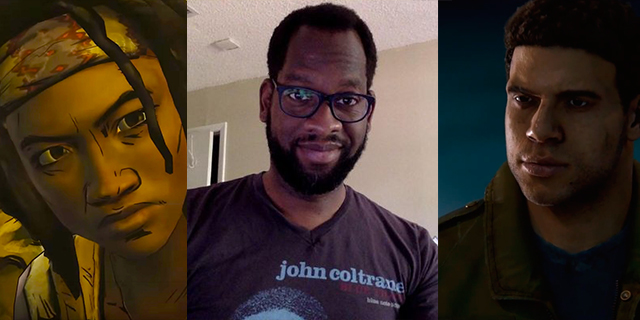I haven’t played an MMORPG since 2010, when I allowed my World of Warcraft account to lapse, or at least I hadn’t until recently, when I had to spend a week playing for a class. Rather than start a new account, I picked up the subscription where I’d left off, and headed back into Dalaran, a happening place back then (I gather there are even more hip locations now, but I’m not that cool).
I never missed WoW; I didn’t much like it even when I played regularly, since I was just playing with friends. I had cut my MMO teeth playing Final Fantasy XI, so WoW seemed ugly to me, overly colorful, too linked to standard fantasy lore, dumbed down, and easier with all the content that had been added and changed. In short, I was a terrible snob, but I still managed to play for a while, even doing a little raiding. But here, again, I was playing with friends, with classmates, and the game still seemed boring. We kept joking we were only hitting one button in combat—two at the most—and what was the point? Where was the thinking, the strategy? If we had to play a Blizzard game, let us play Hearthstone or Overwatch, we begged, but we were studying virtual worlds, and WoW will run on anything, so WoW it was.
Class ended and still I had three weeks left on my subscription. I tried out all my old characters, except the paladin I hardly remembered leveling (that was surely under duress; I don’t mind tanking, but I get lost easily, so I should never be leading the charge), and wandered around, exploring, analyzing the banality of trade chat, trying to figure out just what it was that had gotten so many people so hooked for so long. With a new expansion on the horizon, chat was full of people trying to get things done before any changes dropped, and that was a bit of insight into that drive. The talk of money, though, was most interesting to me; prices on everything where much higher than when I’d left, perhaps related to the people who had been playing for years and the hoards they’d built, especially after the addition of garrisons. I started scanning the auction house, marveling at the differences. Things I remembered paying a few gold for were a hundred or more. Among all my characters, I barely had 1500; people were selling single items for as much as 80,000 in chat. I couldn’t even imagine that much gold.
And that’s where it happened—I found my way back in, and I wasn’t even trying. I was still complaining about the game, about the instances I ran, about people disappearing, about attitudes, about chat spam, about the weirdly positioned trees and plants and the bodies of characters and the ridiculous shoulder armor, but also somehow I ended up reinstalling an auction house add-on. For convenience, you know. Then the mobile app. I studied my old characters’ professions, started some new ones, farmed, made items, leveled. My gold tripled, and tripled again. Rinse and repeat. With horror, I realized I was actually enjoying myself. Begrudgingly.
I’ve talked before on the podcast about my drive in games to get all the things, about how I rarely finish the main quests in RPGs because I get so wrapped up in side quests and professions. In an MMO, there’s no end to that. There’s no limit. You keep going and gaming the market. You listen and analyze. The “main” quest? Doesn’t exist. Sure, I guess you can level and raid, but you don’t have to; gear doesn’t have to be your end goal. When I left, my main was capped; since returning, I’ve barely touched her, though the game has moved twenty levels beyond. I’m not interested in playing with other people, just seeking to build up my gold. But why? If I’m not going to play longterm (and I’m not; I can’t; who has the time?), what does the gold matter? What am I collecting it all for? As I was running around Hellfire Peninsula (again; I still remember that as the land of never-ending quests and also of Fel Reavers somehow sneaking up from literally nowhere, the bastards), it hit me: my life has been so out of control lately, and this is something I can control almost down to the letter. I can’t force people to buy my things, but I can out-think the market and work the angles.
This summer, my partner’s had trouble with work, someone wrecked my parked car, my landlord is selling the house we rent, my grandmother’s ill, and there’s nothing I can do about any of it, but I can see what’s selling well and go get it, all without depending on anyone else, or interacting with anyone. Various surveys over the years have placed the median age of WoW players in their late twenties; more than 70% are usually over the age of 20. Nick Yee, among others, has done tireless work in this area, analyzing player age and social behaviors, and I wonder how many of those players are not playing to escape—I think that’s a miscalculation made by common media, a media that doesn’t understand virtual worlds—but rather, to cope. So much of our lives swirl around us. Just under half of Americans live paycheck to paycheck; a single month without income would cause significant financial upheaval, and that alone represents a vast uncertainty. As a grad student, I understand that, and with an MMO, there’s not only little need to buy other games (you have one! just keep paying!), but there are aspects that are both endless and dependable. You know what drops where; you know your way around; you know you can find something you’ll love and can pursue to distraction. Some people are like me, dragons on a hoard of gold. Others want the newest, shiniest thing and will work tirelessly to get it. Still others use the space for RP, or PVP, or a dozen other things, all of which may well be more predictable than the world beyond. Sure, there are elements you can’t control: maybe your raid team wipes this once. But you have more control there than you do if, say, the company you work for announces layoffs. If someone plows into your parked car while you’re getting ready for bed. If a loved one suddenly develops cancer.
So, yes, these games do offer an escape into a persistent world, but it’s not just escape; it’s control, with further controlled interaction. You can engage with others exactly as much as you want to, and you can bend the game to your own skills and preferences. An MMO can be mindless or very much an exercise in skill and strategy. For me, it’s a long puzzle. I look for openings and venture out to find the pieces that fit them. I’m not interested in gear or levels. I don’t care to play, really. I move around the others, while they do those things. We are all assembled here, performing different roles, and the world shapes around us.
Coming back to this has been interesting then, not because I love the world, but because it offered a little insight and a little peace. When last I played, too, my world was in upheaval, and it was a way to connect with friends I rarely saw in a time when I needed them most. Now it’s a way to remember to breathe, that things are okay, that I don’t have to spend every moment worrying, because what good does that do?
So many of us here have written about games as crisis management, about coping with tragedy and anxiety and mental health, and maybe that too is why representation seems so important to us. If games exist to take us somewhere else, to offer a bit of control we might not otherwise have, wouldn’t it be lovely if we had a little more control there, too? Or at least more options? Sometimes, we all need a place to go, if only for a little while.





One thought on “A Return to the World of Warcraft, or How I Learned to Stop Worrying and Farm the Gold”
Good read!